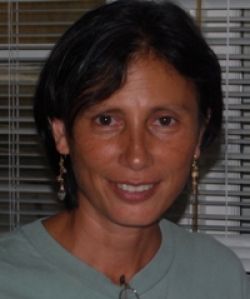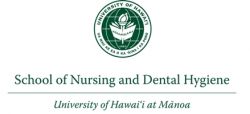Student by Day, Midwifery Advocate and Mother by Night
For most of us, our first recollection of the birthing process comes from family stories, a video in health class, or a sitcom scene. For Eiko Cusick, however, it came from a real woman delivering a baby in a teepee in the mountains of Japan. The experience would shape the rest of her life.
Cusick had earned her business degree, but found she was more interested in pursuing the Japanese language and culture that is a part of her heritage. She decided to move to Japan where she was introduced to an entirely new way of looking at health.
“There were new ideas and solutions to care,” she said. “In the U.S., we tend to think along a timeline of immunizations but there are other ways to approach wellness, like through diet, herbs and healing techniques.” A friend invited her to participate in the birth of a baby, and it was that event that triggered Cusick’s interest in natal health.
Based in part on her time in Japan, Cusick chose to have a midwife-assisted birth herself, an unpopular option in Hawaii since midwifery was illegal at the time. She learned as much as she could about the practice, and began working in the community doing advocacy work for midwives and the women who choose this type of birth. Cusick went back to school at the University of Hawaii at Manoa and earned her master’s in public health.
Over time, midwifery has become an “alegal” practice in Hawaii, which means it isn’t forbidden by law, but there is neither licensure of midwives nor coverage of midwifery fees by health insurance companies. In Texas, however, midwifery was legal, and Cusick moved to El Paso to begin working with a direct-entry midwifery school. There, she assisted other students and interns with patient deliveries, prenatal care and post-partum health -- a job even more impressive considering that care was delivered almost entirely in Spanish by native English speakers.
“Most of our patients were coming from Mexico and it was evident pretty quickly that there were cultural divides,” said Cusick. “It was a great opportunity for us to teach women about healthy habits and practices so that they would take that knowledge back to their communities.”
Her professional experiences and a personal diagnosis of breast cancer later motivated Cusick to pursue the goal of becoming a nurse. Now in her forties and back in her home state, in August of 2010, Cusick was one of five students to receive a $10,000 scholarship from the Robert Wood Johnson Foundation New Careers in Nursing program at the University of Hawaii Manoa’s School of Nursing and Dental Hygiene. The university offers a three year master’s entry program in nursing which prepares adult learners for specialty nursing pathways. As an NCIN scholar, Cusick is able to participate in skill workshops with nursing leaders in her community, and to share some of her own 20+ years of experience in the health field.
While still in her first semester, Cusick has big aspirations. “I’m excited to continue my work with breast feeding and birthing moms,” she says. “The master’s program even has me excited about the prospect of teaching at the university!”
She plans to go into the family practice specialty and continue to study midwifery. Cusick hopes to use her nursing experience in international programs as well as in Hawaii. “Hawaii used to be known as the healthy state,” she explains. “At some point that fell to the wayside, but I want to get us back there once again.”

